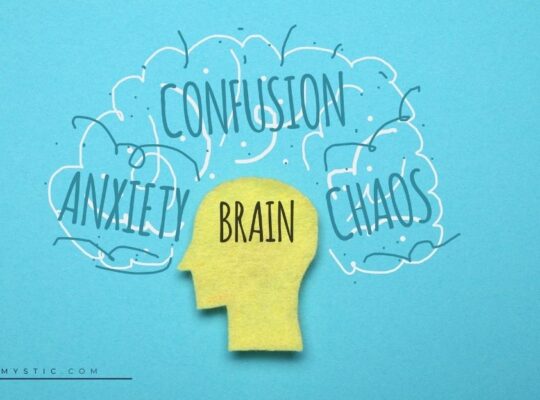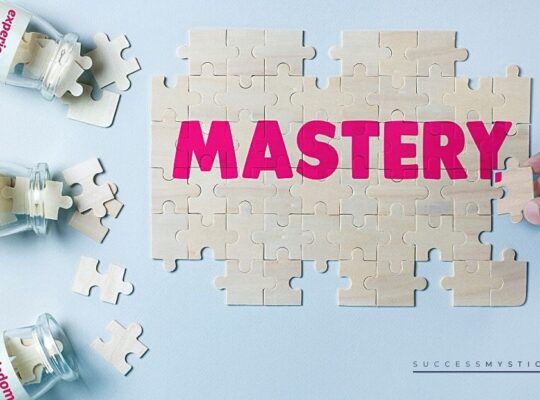Regret is a feeling most people can identify with. At some point in time, nearly everyone has the experience of feeling negative about a previous decision or feeling sad about what might have been had something gone differently. Generally, regret is seen as a negative, and when festers it most certainly can be.
The key to avoiding this outcome is learning how to transform regret into something that can be beneficial. With a change of perspective and intentionality, you can begin to turn your regrets from something negative into personal growth that can then be used to enhance your progress in life.
What Is Regret
Regret is a negative cognitive or emotional state that is characterized by blaming ourselves for a negative outcome, wishing we could change a prior decision that we made, or feeling a sense of loss and sorrow at what could have been. Regret is closely associated with feelings of guilt and shame.
Regret is generally a long-term emotion that people struggle to eliminate, and many regrets are linked to a specific incident or time period in the past as opposed to a general timeframe or occurrence. Regrets can be broken down into two main categories- regret by action and regret by inaction.
Regret by action is regret tied to a decision or choice that was made in the past. Regret by inaction is regret linked to a decision that was not made.
How Regret Impacts Our Lives
Regret can influence our lives in a variety of ways, many of them negative. Understanding these negative impacts can help us see the necessity of working to release regret and pursue personal growth.
Poor Mental Health
One negative impact of regret is a decrease in mental health and function. Holding on to regret can be associated with raised levels of anxiety, increased feelings of shame and guilt, intense feelings of anger, and chronic feelings of sadness and dysphoria. Depression is also highly associated with regret.
Decreased Physical Health
Physical health can also be impacted when we hold onto regret. Research has shown that regret can lead to chronic stress and chronic stress is known to negatively impact immune and hormone health. Decreased immune function means greater susceptibility to illness and disease.
Elevated hormone levels can lead to ailments such as high blood pressure, increased heart rate, poor digestion, and raised glucose levels. Chronic pain conditions, migraines, and headaches can also be linked to elevated stress levels in the body. Depression, which can be caused by holding onto regret, can also affect the body by leading to conditions such as chronic fatigue and lower libido. Depression can also decrease immune function and increase the likelihood of illness.
Lack Of Fulfillment
Another impact of regret is a lack of personal fulfillment in life. It is hard to find joy and satisfaction with the present when your focus is constantly tuned towards the mistakes of the past. As you continually think about what could have or should have been you rob yourself of the chance to enjoy the here and now, and you also keep yourself from putting forth effort towards the future which could reap positive benefits and outcomes.
Decreased Motivation
A heavy focus on regret can be linked to a decrease in motivation. When we think about things, we wish would have turned out differently as related to our action or inaction, it can make us feel that there is little point in trying to move forward.
We tend to think that past outcomes reflect future outcomes and if our past actions did not turn out as desired, we can believe that our future actions will result in a similar undesired outcome.
Poor Relationships
The quality of relationships can be decreased by the regret we hold onto in our lives. Many of the negative emotions linked to regret such as anger and resentment are associated with breakdowns in interpersonal relationships.
Regret that goes unaddressed can impact a person’s ability to engage, connect, and relate to others in a manner that would allow for meaningful connection. Those dealing with regret tend to turn towards isolation and struggle with connecting with other people.
Weakened Self-Esteem
The more we harbor regret the lower our self-esteem becomes. Regret causes us to focus on our mistakes, flaws, and imperfections in a way that can lead us to doubt our knowledge, skills, and abilities.
When all we see is how something we did or did not do led to a negative outcome or prevented a potentially positive outcome, it tends to make us feel less than and question our value or worth.
Decreased Success
Our ability to achieve can be greatly limited by regret. Holding onto the past deviates focus and energy from current and future goals, which keeps you from making adequate progress towards goals and ultimately means a lack of forward movement in your life.
Change In Personality
Over time regret can fundamentally impact who you are as a person. When regret is allowed to fester, it can transform into shame, bitterness, and a host of other negative emotions that alter how you think, what you believe, and how you act. Ultimately, it can result in a person who is more miserable and less pleasant overall.
Common Regrets People Have
While regrets can certainly be specific to an individual, there are patterns amongst what people tend to regret in their lives. The following outlines some of the most common overarching regrets shared by large groups of people.
Spending Time With Loved Ones
Many people regret not spending more time with the people they love and care about. When looking back people often find that they busied themselves with outside work and pursuits so much so that they missed valuable time, moments, and memories with the people they care about. These regrets tend to arise most often when a loved one’s transition (i.e., moving, death, etc.) or at the end of one’s own life.
Pursuing Dreams And Passions
Often failing to pursue one’s dreams and desires can be a point of regret for many people. People frequently find that many of their efforts were put into helping others accomplish their goals or pursue their dreams, at the expense of their own. This can increase levels of unhappiness and lack of fulfillment in one’s life that creates regret.
Being True To Themselves
Many people find that they have spent a large amount of time existing in the world as a version of themselves that is not authentic. This can often lead people to feel regret for not being true to who they really are. The exhaustion of having to be someone else eventually catches up to a person and amplifies the regret one feels.
Less Time Working
Another common regret is working too much. When people reflect, they tend to find that so much of their time was consumed by the work that they missed out on meaningful moments and meaningful relationships. Major life changes tend to bring on this type of regret (i.e., graduation of a child, divorce, end of life, etc.) as they are major moments that cause individuals to reflect on the time that has passed and how that time has been spent.
Taking More Risks
People generally find that they played it safe in life which can lead to regret. When you think about how your failure to act may have led to missed opportunities it can cause you to feel as though you have lost out and make you wish a different decision was made with the belief that it would have led to a more favorable outcome.
Cared More For Self
As life catches up with individuals, they often find that they neglected themselves. This regret often arises when faced with a health (whether mental, emotional, or physical) crisis that causes people to realize how their life of self-care led to a poor outcome.
When people in this situation look back, they tend to see how they ignored their own needs and wants to help or please others and how doing so ultimately harmed them.
Enjoyed Life More
A major regret many people feel, particularly as they age, is that they did not enjoy life more. Reflection leads many to find that more energy was spent working and pursuing goals or tackling tasks, and less time was spent actually living in the moment and appreciating the here and now.
As people age, the realization of what really matters tends to kick in and people see that working and always thinking about the next thing or chasing after the next thing pales in comparison to finding joy in the present.
12 Other Key Regrets
- Cared less about what other people think/Lived a more genuine life
- Been more successful/enjoyed more accomplishments
- Enjoyed the moment more
- Worked less
- Saw life as precious, short, and not taken it for granted
- Traveled more
- Hadn’t spent so much time worrying
- Enjoyed more personal satisfaction in life
- Been more appreciative of all I had
- Getting out of a bad relationship sooner
- Not wasting so much time
- Not using regrets as learning opportunities
What Is Personal Growth
Personal growth and development is a transformational process where individuals make improvements in their physical, emotional, intellectual, social, spiritual, or even financial state. This process is generally triggered by a major life event which motivates individuals to improve their lives.
As a result of going through this process people create a more meaningful and satisfying life. Areas of life that tend to be impacted include self-esteem, self-image, worldviews, and relationships. Based on this understanding of what personal growth is, regret or the situation/choice connected to that regret, can often be the major event that leads people towards personal growth in their lives.
How Regret Can Push Us Towards Personal Growth
Regret does not always have to be a negative thing. When we learn to repurpose regret it can actually work in our favor. Some of the ways regret can benefit us include:
Self-Awareness
Regret can offer us a valuable opportunity to reflect and gain self-awareness. By assessing from the past that turned out in a way different than we desired as a result of those things we did or did not do, we have the ability to learn about how our thoughts, actions, and patterns contribute to outcomes. In doing so, we gain the information about ourselves that we need to make valuable changes for the betterment of ourselves and for more positive outcomes.
Greater Sense Of Responsibility
Regret can also cause us to develop a greater sense of responsibility in our lives. When we are forced to look at how our actions led to certain unfavorable outcomes, we have to step up and take responsibility for those choices and their impact. In doing so, we gain maturity and learn how to make more responsible choices that lead to better outcomes. This allows us to be more serious and intentional in our efforts and decision making.
Character Building
Our character can be built as a result of regret as well. When we have regrets, we are given the chance to evolve and redefine our life experiences. By facing our regrets and taking steps to get over them we become more resilient and learn to persevere over obstacles and unfavorable outcomes in the end.
Hone In On True Desires
Regret can often help us fine tune those desires we truly long for. When we have regret it often centers around choices we did or did not make. In reflecting upon these things, we can often see how the poor outcome as related to our action or inaction comes into direct opposition with what we really want. When we become aware of what we want we can then take the necessary actions to move towards our desires and make them a reality.
Improved Quality Of Life
In general, when we use our regrets to learn and grow from them, that learning and growth can be applied to make our lives better. In learning more about ourselves and gaining insight that helps us to make better choices and decisions, we can create the lives we long for and find ourselves more satisfied and fulfilled.
10 Steps To Turn Regrets Into Personal Growth
We can take steps to help us transform our regret into personal growth. This requires intentionality and effort, but the outcome is sure to be beneficial and worthwhile. Such steps that can be taken include the following:
Reflection
One-way regret can be transformed into personal growth via reflection. Regret gives us the chance to look back at how our action or inaction contributed to an outcome we deem undesirable.
This helps us look at our thoughts, beliefs, and patterns of behavior so that we can determine what can be changed or improved upon in order to lead to a better outcome. This reflection can enhance self-awareness and improve our understanding of how our actions affect outcomes.
Mindfulness
Mindfulness is the process of deep focus on something in particular in order to alter thoughts or behavior. Mindfulness can be used when reflecting on regrets as a means to change the way we view them and as a way to help us use them to our benefit.
Using mindfulness, we can see regrets less as mistakes that cannot be recovered from and more as lessons and learning opportunities. Not only that but mindfulness can be used to help us develop methods and strategies for changing our behavior and actions so we can avoid outcomes like the ones we regret.
Reframing
Reframing is the process of shifting how you view something. When it comes to turning regrets into personal growth, reframing involves looking at those things you regret as lessons and learning opportunities. By doing so you give your regrets a less negative connotation that holds less weight. This allows you to move on and keeps you from going down the path of hyper-focusing on the negatives.
Growth Mindset
Along with reframing, adopting a growth mindset can be a powerful means of turning regrets into personal growth. A growth mindset is characterized by a belief that you have the ability to grow in your knowledge and skills. When you have this type of mindset you are quickly able to pivot from regret knowing that in spite of an error or missed opportunity, you have the ability to learn what is necessary to grow and avoid a similar outcome in the future.
Forgiveness
One of the best ways to turn regret into personal growth is to embrace self-forgiveness. At times there will be nothing you can do about what has already taken place or what has not taken place.
Personal growth in this instance occurs when you learn to stop ruminating on the negative and forgive yourself for things that cannot be changed. Taking such a step builds resilience and frees you to make progress towards future goals and dreams.
Compassion
Hand in hand with self-forgiveness is self-compassion. Compassion involves being sympathetic and understanding towards yourself. This means instead of holding something against yourself, you can give yourself grace with the understanding that you are human and prone to err sometimes.
When you don’t have the expectation that you need to be perfect or that things always have to result in a positive outcome you can relieve yourself of pressure and simply learn from what went wrong so it doesn’t occur again in the future.
Get To The Root
Getting to the root cause of your regret is another way to transform your regret into personal growth. The only way you can learn from those things you regret is truly understanding why they happened.
This requires reflection and self-analysis that can aid you in identifying negative thoughts or patterns that could have contributed to the negative outcome. By understanding this you can put your efforts towards altering those thoughts and patterns so that outcomes moving forward are more favorable.
Refocus Efforts
When you harbor regret you tend to think about scenarios or alternate decisions that would have resulted in different outcomes. This rumination can lead to anxiety, stress, and even depression. Shifting your energy towards what you can be doing now and what is coming in the future can help you be more productive and fruitful in your life.
Live In The Present
Choosing to live in the present rather than ruminating on the past is a good way to turn regrets into personal growth. What has already happened cannot be changed. Instead of wasting energy reliving the past time and time again, living in the present helps you to enjoy your life right now and ensures you’re giving adequate effort to your current pursuits.
Seek Counsel
When all else fails, there is nothing wrong with reaching out for help. At times it can be hard to deal with regret on your own and having someone to talk to and assist you in working through regret can be the key to being able to learn from and release your regret.
Whether a close friend or a trained professional, having a safe space to discuss your regret and process through how to avoid a similar situation can be exactly what you need to thrive.
How To Know If You’re Holding Onto Regret
How do you know if you are holding onto regret? It can be challenging at times to know when this is the case, but it is not impossible. There are some signs that can signal to you that you’re holding onto regret in a way that is negatively impacting your life.
- Rumination: Rumination is the act of being in deep thought or consideration about something. In general, this is not a bad thing, but it often tends to revolve around negative things rather than positive ones. Thus, if you find yourself constantly thinking about a decision or experience it could mean you have some regrets regarding it.
- Irritation: A sense of irritation or anger regarding a decision or an experience could also be a sign of regret. Generally, when we feel confident or good about a decision or experience the thoughts and feelings, we have regarding those things tends to be positive.
But when reflection breeds anger and irritation regarding those things it can often mean that we wish things would have turned out differently. The inability to reflect on an event or choice without feeling frustrated about it might help you uncover a hidden regret.
- Bitterness/Resentment: When you feel a continual sense of bitterness or resentment regarding a choice or experience, or towards individuals who achieved an outcome or had an encounter that was different than yours can also hint at regret. Bitterness and resentment form over time from an inability to let things go.
Since regret also stems from an inability to let things go by focusing on what could have or should have been, bitterness and resentment tend to be natural partners to regret and can help you spot when regrets are present in your life.
- Reliving It: Similar to rumination, reliving an experience or decision can often mean there is regret present. Reliving the experience or choice involves replaying the actions continuously, but it also includes generating an alternate decision or outcome and focusing on how that alternate choice or encounter could have generated a different outcome. This constant replaying of events often hints at a desire for things to have turned out differently and hence a regret.
Final Thoughts
Learning how to transform our regrets into personal growth is a valuable pursuit. There is so much that we can learn from regret if we shift the way we view it and purpose in our minds to use it for our benefit. Enhanced awareness, better relationships, improved quality of life, and stronger character can all develop as a result of transforming regrets into personal growth.
Failing to do this can lead to issues such as poor mental and physical health, poor self-esteem, altered personality, decreased productivity, and breakdowns in relationships. While regrets will not be erased immediately, over time we can begin to see them dissipate when we take measures such as embracing self-forgiveness and compassion, seeking help, practicing mindfulness, reframing, and adopting a growth mindset.
As we do these things and see our regret transform into usable information and personal growth, we can find ourselves being more effective, efficient, and living more fulfilled lives overall.
References:
Child Foundation Center. (2020, October). The psychology of regret.
Marisk, S. (2020, April 12). How to learn from mistakes: 8 steps to follow. Effective Learning Lab.







